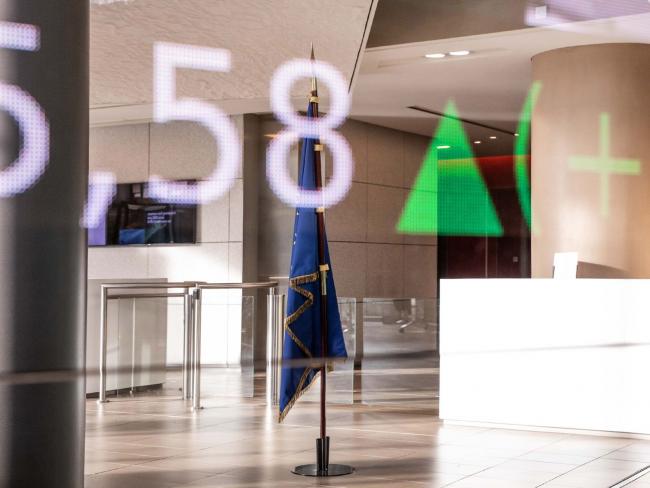(Bloomberg) -- U.S. stocks rebounded from the worst rout since the financial crisis, though gains began to fade on questions over the timing for stimulus promised by the Trump administration to combat the effects of the spreading coronavirus. Haven assets from the yen to Treasuries slumped.
The S&P 500 rose more than 2% in early trading, spurred by the American president’s promise for “major” moves later Tuesday. Gains that reached 5% overnight faded, though, on reports the White House might not be as far along as thought. European equities rallied, with Germany considering easing bank capital requirements. Brent crude futures rallied after Monday’s crash. The yen slid alongside the Swiss franc. Ten-year Treasury yields retraced about half of yesterday’s drop.
“A strong rebound today, if it in fact holds, does not mean the volatility, or even the worst, is behind us. Rather, investors should expect continued gyrations both up and down until there is greater certainty on coronavirus,” said Greg McBride, chief financial analyst at Bankrate.com.
The rebound in risk assets was sparked by signs governments around the world are awaking to need for stimulus measures to combat the virus that is threatening to plunge the global economy into recession. Donald Trump’s proposal will likely include a payroll tax cut and a short-term expansion of paid sick leave, according to people familiar with the plan.
At the same time, measures to contain the coronavirus continue to undermine prospects for corporate earnings, and raise the danger of a funding crisis, while the oil price crash threatens a swath of defaults among producers. Italy added nationwide travel restrictions to its effective lockdown of the northern region of the country.
“While things feel like the end-of-days I’d stay risk averse in the near-term, but expect bear market rallies,” Chris Weston, head of research at Pepperstone Group, said.
Elsewhere, Japanese government bonds tumbled after an auction of five-year debt flopped.
Here are some key events coming up:
- The European Central Bank’s policy decision comes Thursday amid expectations it may ease policy.
- The U.K. Chancellor of the Exchequer unveils the government’s 2020 budget on Wednesday.
- The U.S. core consumer price index, due Wednesday, is expected to remain subdued in February.
Stocks
- The S&P 500 Index advanced 2.5% as of 9:51 a.m. New York time.
- The Stoxx Europe 600 Index rose 1.9%.
- The MSCI Asia Pacific Index climbed 0.5%.
- The MSCI All-Country World Index advanced 0.5%.
- The Bloomberg Dollar Spot Index jumped 0.6%.
- The euro sank 0.6% to $1.1379.
- The British pound decreased 0.7% to $1.303.
- The Japanese yen weakened 1.9% to 104.34 per dollar.
- The yield on 10-year Treasuries climbed 11 basis points to 0.65%.
- The yield on two-year Treasuries climbed five basis points to 0.43%.
- Germany’s 10-year yield climbed 10 basis points to -0.76%.
- Japan’s 10-year yield increased 12 basis points to -0.048%.


- Brent crude surged 8.7% to $37.31 a barrel.
- Gold weakened 0.9% to $1,660.70 an ounce.
- Iron ore climbed 4.3% to $88.66 per metric ton.